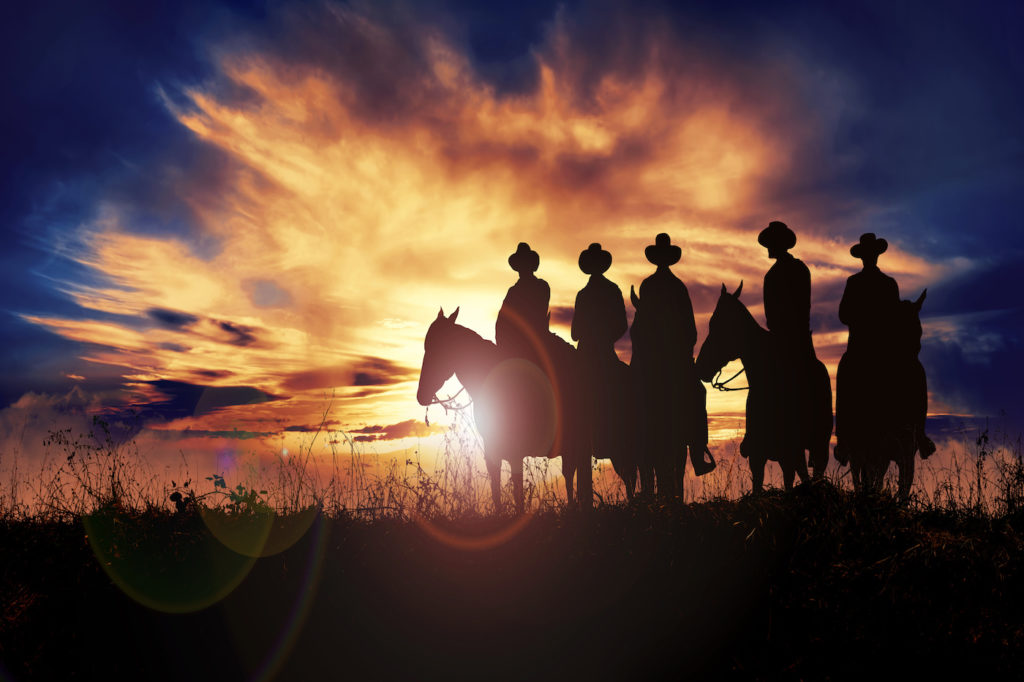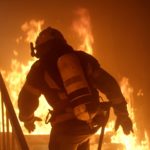Though we seem to understand courage and cowardice at a visceral level, our culture often struggles to articulate each concept in clear and coherent terms. We might think that cowards are those who, though possessing the strength and ability to respond to some threat, refrain from doing so, and may even retreat. Conversely, we might suggest that the courageous are those who hold their ground, and when necessary are even willing to place themselves in danger for some good. The important thing is to do the latter, not the former. But is it really that simple?
For tragic reasons, the question of courage and cowardice has been the subject of intense public debate since the horrific school shooting in Uvalde, Texas on 24 May. Many commentators (and parents) have used the words “coward” or “cowardice” to describe the behavior of local police forces for not acting more quickly to neutralize the threat. Given what was at stake, that language (and the concomitant outrage by those who lost loved ones) is understandable.
What has struck me about the most recent revelations regarding Uvalde was the role of proceduralist inertia. A recent seventy-seven-page report by Texas lawmakers investigating the incident noted lapses in preparation, training, and judgment by the various police authorities at Uvalde. “The void of leadership could have contributed to the loss of life as injured victims waited over an hour for help,” the report stated, adding that larger state and federal agencies that arrived later should have assumed command. In other words, a lot of men, perhaps many who felt an inner desire to demonstrate courage in those minutes, were stymied by their own confused bureaucracy and perhaps blind faith in “the system.” For those of us horrified by these events—and perhaps fearful that we ourselves might fail in such a dire moment—a deeper reflection is required on the nature of courage and cowardice, especially in the context of group dynamics.
The Ox-Bow Incident, by Walter Van Tilburg Clark, originally published in 1940 and made into a Hollywood movie three years later, offers some helpful—and surprisingly relevant—commentary on the nature of courage and cowardice. The novel, critically acclaimed as a masterpiece of the Western literary genre, is an extended study in human deliberation, both individually and collectively. Through the actions of the novel’s characters, Clark perceptively examines the factors that influence our ability (or inability) to act courageously in moments that require great moral clarity. In considering cowardice in its many manifestations, The Ox-Bow Incident reminds us what is required in order to be courageous.
Start your day with Public Discourse
Sign up and get our daily essays sent straight to your inbox.Confidence and Credibility
The Ox-Bow Incident is told from the perspective of reflective and generous cowboy Art Croft, who shortly after arriving in the fictional 1880s cow-town of Bridger’s Wells is swept up into a posse dedicated to finding three men suspected of cattle-rustling and murder. Yet the group of almost thirty men (and one woman) is not really a posse: the town judge refuses to give his blessing to the group, and the town pastor, Osgood, repudiates them for being nothing more than a “lawless mob.” The sheriff isn’t even present, and his deputy, who is eager to participate in the lynching, surrenders his own authority to the strongest personality of the bunch: a former Confederate cavalry officer–turned rancher named Tetley.
The first man to object to the mob’s pulsing thirst for vengeance is Osgood, who is not well liked by the town. “His voice was too enthusiastic and his manner too intimate to be true,” writes Clark, who describes him as pompous yet nervous. When he first hears of plans to form an extra-judicial posse, he is described as “looking as if he were going to cry.” When he approaches the men, he goes “busily, as if he didn’t want to, but was making himself.” Croft describes him as “trying to do what the thought was right, but he had no heart in his effort . . . He talked with no more conviction than he walked.” Osgood preaches to them:
Men, let us not act hastily; let us not do that which we will regret. We must act, certainly, but we must act in a reasoned and legitimate manner, not as a lawless mob. It is not mere blood that we want . . . We desire justice, and justice has never been obtained in haste and strong feeling.
Croft expects him to go on, but he doesn’t. “He stopped there and looked at us pathetically.” Regardless of the content of Osgood’s sermon, the man lacks both confidence and credibility.
Courage requires more than simply saying the right things. Inhabiting a position of moral authority is not sufficient—one must be recognized as possessing the necessary moral gravitas and credibility. The courageous man is recognized as such through habit and public example. Because Osgood is perceived as self-important but weak, men pay his words no heed. His language of reason, legitimacy, and law—however truthful they may be—falls on deaf ears because he lacks legitimacy as a courageous man. He is an “empty suit,” a person who enjoys but does not deserve the privileges of his position, and thus is unable to be persuasive.
Courage requires more than simply saying the right things—one must be recognized as possessing the necessary moral gravitas and credibility.
The Power of Conformity
Davies, the local store owner, is more effective than Osgood in seeking to assuage the rage of the lynch mob. He asks them to consider “real justice,” and argues that by taking the law into their own hands, they unintentionally weaken the power of the law. He calls law the “conscience of society.” For a moment, it seems as if Davies has persuaded several of the posse members.
Yet it’s not enough. “Most men are more afraid of being thought cowards than of anything else, and a lot more afraid of being thought physical cowards than moral ones. There are a lot of loud arguments to cover moral cowardice, but even an animal will know if you’re scared,” reflects Croft. As more armed men congregate to form the posse, the atmosphere shifts. “They were going to find it easy to forget any doubts that had been mentioned . . . Right here and now was all that was going to count.”
Davies’s pleas are ultimately undermined by the personality of the Confederate veteran Tetley, whose every word and action drip with self-assured confidence. Not only is Tetley able to provide new pieces of information that place him in a position of authority, his relaxed manner and demeanor exude an authority that surpasses all others present. It is he who is able to persuade the deputy sheriff to deputize all of the men as members of an ersatz posse.
It is here that we witness the coercive power of conformity. Courage requires resisting the pressures of the mob, being willing to suffer exclusion or derision for the sake of a moral principle. Tetley’s son Gerard, a weak and frail young man who wishes he wasn’t there, mutters to Croft: “We’re afraid not to be in the pack. We don’t dare show our pack weakness.” Courage must conquer the fear of being ridiculed by one’s peers, and demonstrate a willingness to uncouple from the pack.
Inadequate Virtue
The Ox-Bow Incident is a portrait of the many ways men fail to exemplify courage. Preacher Osgood lacks the conviction and credibility to deter the men. Others lack the valor to stand apart from the mob, even when they know they are complicit in wrongdoing. Still others allow their passions to dictate their decisions—many of the posse members express their eagerness to kill the alleged cattle rustlers in fiery, enraged language that evinces their surrender to emotivism. Meanwhile, posse leader Tetley, a widower with a son he is ashamed of, is driven by a cold, calculated mission to kill, for reasons we can only imagine. As Aristotle says, “For men are good in but one way, but bad in many.”
Courage, it would appear, requires more than simply the willpower to act. It is a virtue that must be cultivated and informed by the other moral virtues of prudence, temperance, and justice. Aquinas argues that these virtues are connected because they share general properties. For this reason, he observes that strength of mind cannot be commended as virtuous, if it lacks “moderation or rectitude or discretion.” Citing Gregory the Great, he explains that “a virtue cannot be perfect’ as a virtue, ‘if isolated from the others: for there can be no true prudence without temperance, justice and fortitude.’”
It is not difficult to identify the truth of this in The Ox-Bow Incident. Prudence, or practical reason, is deficient in the preacher Osgood, whose character and rhetorical ineptitude dilute the potency of his words. Temperance, or curbing the passions, is lacking in the men who are driven by an increasingly uncontrollable desire for blood. And justice, or the giving of what is proper and due, is lacking in practically all of them, but perhaps most saliently in Tetley, who, though giving the appearance of a dispassionate gentlemen, is a man driven by a vindictive desire to have punishment exacted on his own terms.
Aquinas advises: “Man needs to exercise himself at the same time in the matters of all moral virtues. And if he exercises himself, by good deeds, in all such matters, he will acquire the habits of all the moral virtues.” Because the cowboys lack these virtues, they flail and falter in the face of the zealous mob and the coercive pressures of the intimidating Tetley. In their ignorance and weakness, they misjudge their desire to bring cattle rustlers to justice as courage, when it is in fact cowardice.
Courage isn't just the willpower to act. It is a virtue that must be cultivated and informed by the other moral virtues of prudence, temperance, and justice.
Culture of Cowardice
Though many factors likely contributed to the Uvalde tragedy, the Texas report indicates bureaucratic proceduralism and inertia were at least one cause of the chain of events that allowed such a terrible outcome. Anyone involved in security or any position in which people’s lives are at stake—and as someone who served in Afghanistan, I place myself in that category— should carefully consider how regulatory policies and misplaced trust in the anonymous other can obstruct our ability to perceive when crises demand swift and decisive acts of courage from individual initiative. Indeed, cowardice isn’t only manifested in fleeing, but often in simple inactivity.
If we are to prevent future tragedies like Uvalde, we need to clearly and coherently define the concepts of courage and cowardice that we—often thoughtlessly—invoke in public debate. Uvalde has raised questions related to what we might think of as the broader culture of cowardice in America that is defined by the same risk-aversion, inertia, conformity, and complacency found in The Ox-Bow Incident. In both our individual and collective lives, we often lack the courage of our convictions, we fail to act decisively and confidently, and we allow groupthink or the thoughtlessness that this is someone else’s problem to dictate our actions.
“Most of you couldn’t help it,” says Davies the day after the lynching. “Most men can’t; they don’t really think. They haven’t any conception of basic justice . . . They feel guilty now, when it’s done, and they want somebody to blame.” It is right to question the authorities in Uvalde, given the many details showing that they failed to fulfill their duties. It is however also right to ask ourselves how we would fare in similar circumstances. Perhaps, then, in light of such tragedies, and with the example of The Ox-Bow Incident in mind, we should strive to cultivate the virtue of courage in connection with all other moral virtues so that we can exemplify it when it is required of us. That personal exercise might someday save lives.














